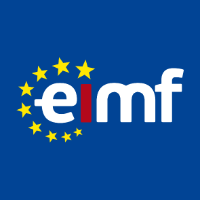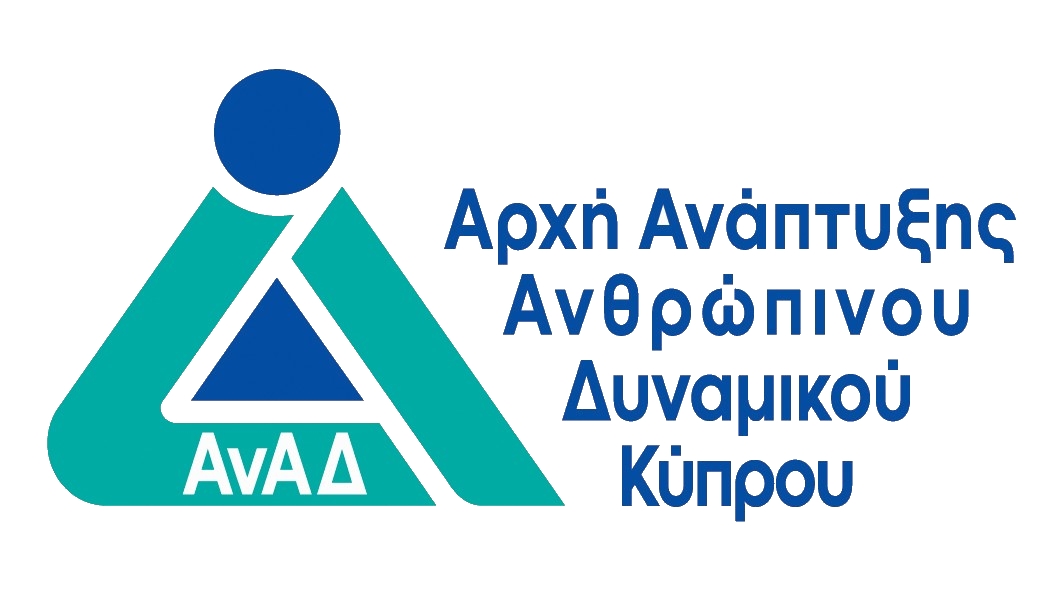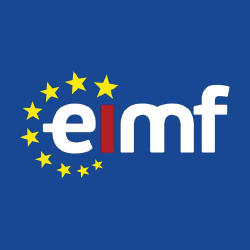
Digital assets on Blockchains: From AMLD5 to the AML Package
- Χρηματοοικ. Ασφαλιστικά Τραπεζικά - Καινοτομία/ Start Ups

ΠΕΡΙΓΡΑΦΗ
In the rapidly evolving digital asset market, understanding the legal and regulatory frameworks is crucial for compliance and strategic advantage. The “Digital Assets on Blockchains: From AMLD5 to the AML Package” course offers an in-depth exploration of the landscape, designed to empower professionals with the knowledge needed to navigate this complex environment effectively. Beginning with an exploration of crypto-assets and cryptocurrencies, the course highlights their legal classifications and roles in the modern economy.
The course delves into the fundamentals of Anti-Money Laundering (AML) regulations, explaining the purpose and objectives behind combating money laundering and terrorist financing. Participants will gain insights into the evolution of the AML regime, from the 4th AML Directive to AMLD5, and its impact on digital assets. The introduction of the 5th AML Directive marked a key development in bringing cryptocurrency activities within the regulatory ambit, imposing relevant obligations on certain cryptocurrency providers and activities to enhance transparency and combat money laundering and terrorist financing.
The new EU AML/CFT regime represents a significant advancement in regulating crypto-assets and crypto-activities. Participants will explore the new EU AML legislative package, which includes four key legal acts: the AMLA regulation, the AML/CFT regulation, AMLD6, and the recast of the 2015 Regulation on Transfers of Funds. The course also covers the establishment of the new EU AML/CFT Authority (AMLA), its structure, and responsibilities, examining how it enhances supervision and enforcement across EU member states. Additionally, the course addresses the interaction of the new AML package with other regulatory frameworks such as MiCAR, GDPR, and FATF recommendations, identifying common challenges and best practices for effective implementation.
This highly researched course provides a comprehensive understanding of the regulatory environment surrounding digital assets on blockchains. Through detailed exploration and practical insights, this course prepares professionals to effectively manage the complexities of AML regulations and their implications for the financial sector.
By the end of the course, professionals will be well-equipped to navigate the regulatory landscape, ensuring robust AML compliance while leveraging the benefits of blockchain technology and digital assets.
ΣΚΟΠΟΣ ΣΕΜΙΝΑΡΙΟΥ
By the end of the programme, participants will:
- Understand the key drivers behind the rapid growth of digital asset markets
- Identify and differentiate types of digital assets
- Define money laundering and terrorist financing and appreciate the importance of combating these activities to maintain financial system integrity
- Evaluate the impact of AMLD5 on cryptocurrency exchanges and wallet providers
- Analyse the FATF Travel Rule and its implications
- Explain the objectives and scope of the new EU AML/CFT regime
- Describe the four key legal acts: AMLA regulation, AML/CFT regulation, AMLD6, and recast of the 2015 Regulation on Transfers of Funds
- Understand the role, structure, and responsibilities of the new EU AML/CFT Authority and its impact on supervision and enforcement across EU member states
- Assess the impact of the new regulation on financial institutions and cross-border transactions
- Identify common challenges in implementing the new AML/CFT regime
ΣΕ ΠΟΙΟΥΣ ΑΠΕΥΘΥΝΕΤΑΙ
This programme is ideal for:
- Compliance officers
- Lawyers – EU Lawyers, Third-country lawyers, Internal lawyers (working in any legal department of an organization or government), Graduate Lawyers. Junior Lawyers
- Blockchain technologists and developers and other Blockchain and Fintech Professionals
- Cryptocurrency Exchanges and Wallet Providers
- Regulatory Authorities and Supervisors
- IT professionals and Software Developers
- Technology Strategy Leaders
- Professionals in the banking sector (Including neo and challenger banks)
- Financial Advisors, Auditors and Accountants
- Executives, Senior Managers, HR Managers, Strategy Managers
- Attorneys of the Republic
- Legal Services Professionals
- Law Students and Researchers
- Legal Projects Managers and Analysts
- Government Agencies
- Corporate Administrators
- Digital Transformation Heads, Officers and Team Members
- Innovation Leaders and members of Innovations labs
- Policy Makers and Government Officials
ΠΕΡΙΣΣΟΤΕΡΕΣ ΠΛΗΡΟΦΟΡΙΕΣ
Training Outline
Part 1: Introduction to Digital Assets, Cryptocurrencies and AML Frameworks
Overview of Digital Assets
- Digital assets vs Cryptocurrencies: Definitions and types
- Importance and growth of digital asset markets
- Legal classification of tokens:
- Fungible Tokens Vs Non-Fungible Tokens (NFTs)
- Payment Tokens
- Utility Tokens
- Security Tokens
- Markets in Crypto-Assets Regulation (MiCAR) classification
- Tokenization and Tokenized Economy
Introduction to Anti-Money Laundering (AML)
- What is money laundering and terrorist financing
- Purpose and objectives of AML regulations
- Importance of combating money laundering and terrorist financing
- The evolution of AML regime: From the 4th AML Directive to the 5th AML Directive
- Overview of AMLD5 and its impact on Digital Assets
Part 2: The EU AML Legislative Package
Overview of the EU AML Legislative Package
- Evolution from AMLD5 to the current legislative framework
- Objectives and scope of the new EU’s AML/CFT regime
- Explanation of the four key legal acts: Regulation (EU) 2024/1620 establishing the EU AML/CFT authority (AMLA), Regulation (EU) 2024/1624 on AML/CFT (the EU “single rulebook”), Directive 2024/1640 on AML/CFT (AMLD6), and recast of the 2015 Regulation on Transfers of Funds
EU AML Authority (AMLA)
- Role and Structure of the EU AML/CFT Authority
- Functions and responsibilities of the new Authority
- Impact on supervision and enforcement across EU member states
Regulation (EU) 2024/1624 on AML/CFT
- Overview of revised EU list of obliged entities and their responsibilities
- Implementation of stringent AML/CFT measures to combat money laundering and terrorism financing
Directive 2024/1640 on AML/CFT (AMLD6)
- Introduction to the Directive’s key provisions and objectives
- National Transposition Requirements: Explaining how Member States should transpose the Directive into national law
- Timeline and process for national transposition
- Implications for Member States and financial institutions
- Rules Concerning National Supervisors and Financial Intelligence Units (FIUs) in Member States
Regulation (EU) 2023/1113 on Transfers of Funds
- Updates and enhancements: Changes to Regulation 2015/847 to improve transparency and efficiency in fund transfers
- Impact on financial institutions and cross-border transactions
Part 3: Interaction with other regulatory frameworks and implementation challenges
- Markets in Crypto-Assets Regulation (MiCAR)
- General Data Protection Regulation (GDPR)
- FATF Recommendations
- Implementation challenges and best practices
Part 4: Conclusion
- Closing Remarks
- Q&A
Training Style
The programme is designed to deliver theoretical knowledge mainly supported by power-point presentations. Participants will also benefit from discussions and a Q&A session at the end of the programme, while they will take away the knowledge gained to be transferred to their workplace.
CPD Recognition
This programme may be approved for up to 14 CPD units in AML and Financial Regulation. Eligibility criteria and CPD Units are verified directly by your association, regulator or other bodies which you hold membership.
This training course may be approved as an external activity under the new ACAMS recertification category ”non-ACAMS credits” for up to 14 CPD units. Eligibility criteria and CPD Units are verified directly by the Association of Anti-Money Laundering Specialists (ACAMS). To read more about the non-ACAMS credits policies and eligibility criteria please click here
Πληροφορίες Εκπαιδευτή
Αναλυτικό Κόστος Σεμιναρίου
Για Δικαιούχους ΑνΑΔ
- € 560.00
- € 280.00
- € 0.00
- € 280.00
- € 280.00
Για μη-Δικαιούχους ΑνΑΔ
- € 560.00
- € 0.00
- € 106.40
- € 560.00
- € 666.40
ΠΡΟΓΡΑΜΜΑ ΣΕΜΙΝΑΡΙΟΥ
Πέμπτη - 15 Μαΐου 2025
Ώρα
09:00 - 15:00
ΕΚΠΑΙΔΕΥΤΗΣ:
Χριστιάνα ΑριστείδουΤοποθεσία:
OnLine Virtual Classroom
Δευτέρα - 19 Μαΐου 2025
Ώρα
09:00 - 15:00
ΕΚΠΑΙΔΕΥΤΗΣ:
Ευδοκία ΜάρκουΤοποθεσία:
OnLine Virtual Classroom
Τρίτη - 20 Μαΐου 2025
Ώρα
09:00 - 13:30
ΕΚΠΑΙΔΕΥΤΗΣ:
Ευδοκία ΜάρκουΤοποθεσία:
OnLine Virtual Classroom
 Ελληνικά
Ελληνικά  English
English



 Αγγλικά
Αγγλικά
 14 ώρες
(
3 μέρες
)
14 ώρες
(
3 μέρες
)












































































